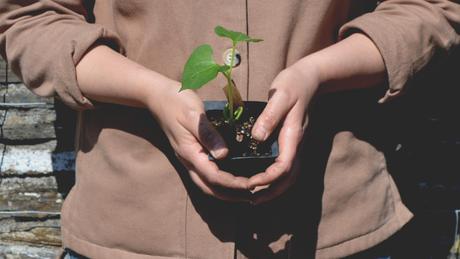
I have to say that April is probably one of my favorite months in the garden. Simply because everything really kicks into growth, you can sow countless seeds, plant out seedlings and you can say good bye to any serious frost (at least here in Devon).
At the weekend we decided it was time to plant out our Borlotti beans. This dual purpose climbing french bean can be used as fresh pods or can be dried and the podded for winter storage. I only discovered growing beans for drying last year and am hoping to get a bigger crop this year.
I learnt that you need a long season, ideally dry, to allow the pods to dry on the plant. I haven't had much success drying the pods once removed from the plant. I will however continue experimenting and I will share any successful method I find. If you have any tips or tricks please let me know.
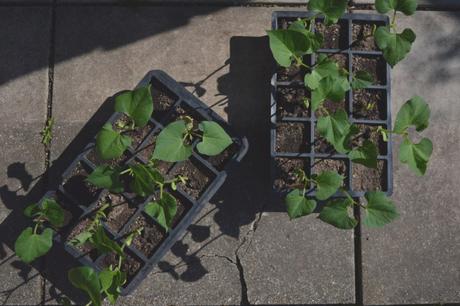
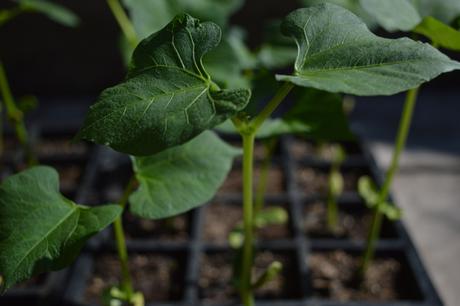
The french bean - Phaseolus vugaris originates from Central and South America and it is believed that it has been used domestically since ancient times. It was fist introduced to Europe in the 16th century. It is no surprise that these beans, with their origins being a continent much hotter than ours, need a minimum soil temperature of 13 C to germinate.
SOWING BORLOTTI BEANS
If like me you want to get an early start, especially if you are growing your borlotti beans for drying and podding, sow indoors late March to April in modules of seed compost.
Once the borlotti beans have germinated place them in a sunny spot until you are ready to plant them out.
You can also sow them outside in May.
PLANTING OUT BORLOTTI BEANS
Before you plant out your seedling you will want to erect some supports. I like using tradition bamboo supports, using 2.5 meter canes. Space each pair of canes approximately 30 - 40 cm apart. You can however also grow them up a wigwam of canes or anything else you can think of.
You can plant out one seedling/seed near the base of each cane as soon as there is a low risk of frost.
I like sowing a bean at the same time as planting out my seedlings. That way I know I have backup should the young plant not make it.
When all is done give the plants a good watering and sprinkle some slug pellets around your plants.
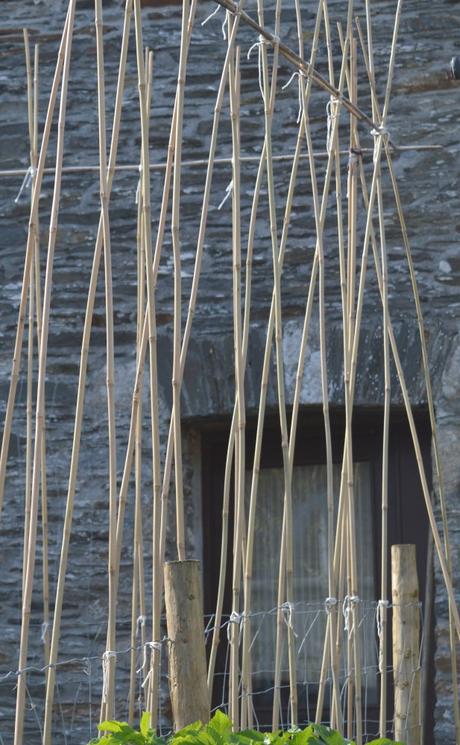
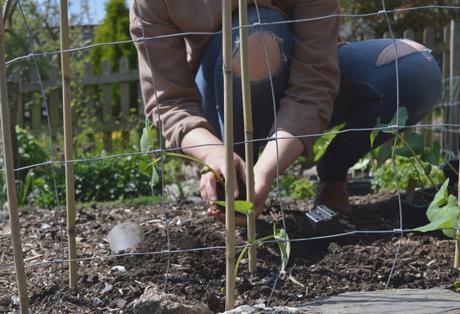
I love growing beans for drying, we have such an abundance of produce during the summer to be picking and eating there and then. These beans don't need regular picking and can simply be left to get on with things. Do water them in dry periods and check for pests such as slugs when they are young and black-fly in the warmer summer months.
I also planted out some french bush beans for drying at the allotment, these are great if you don't want to bother with supports. Two great varieties are French bean Cannelino and Brown Dutch.

